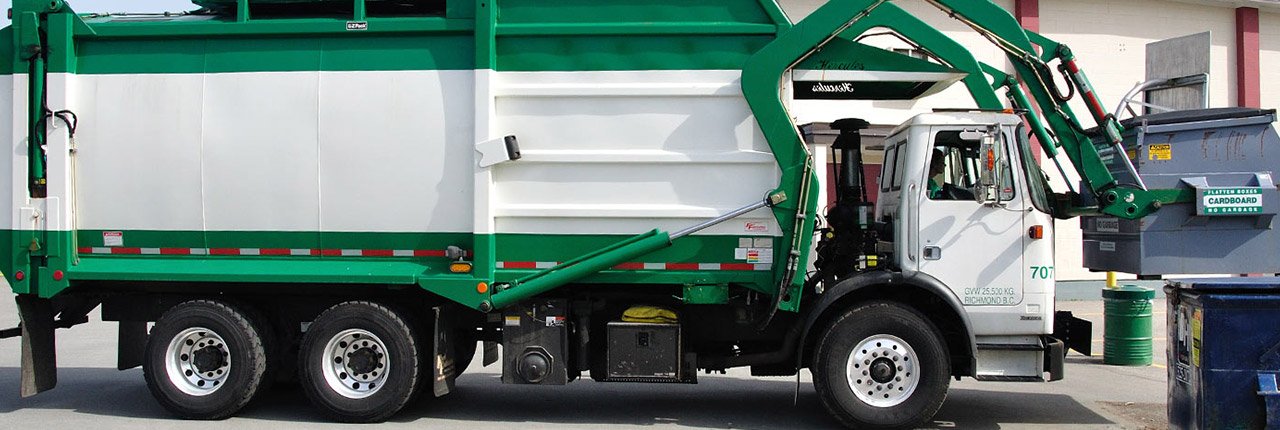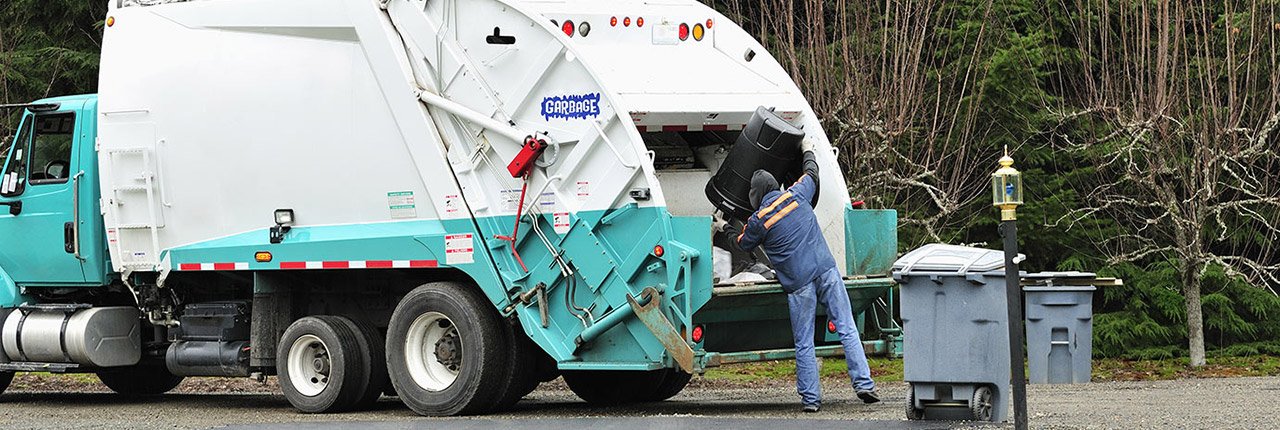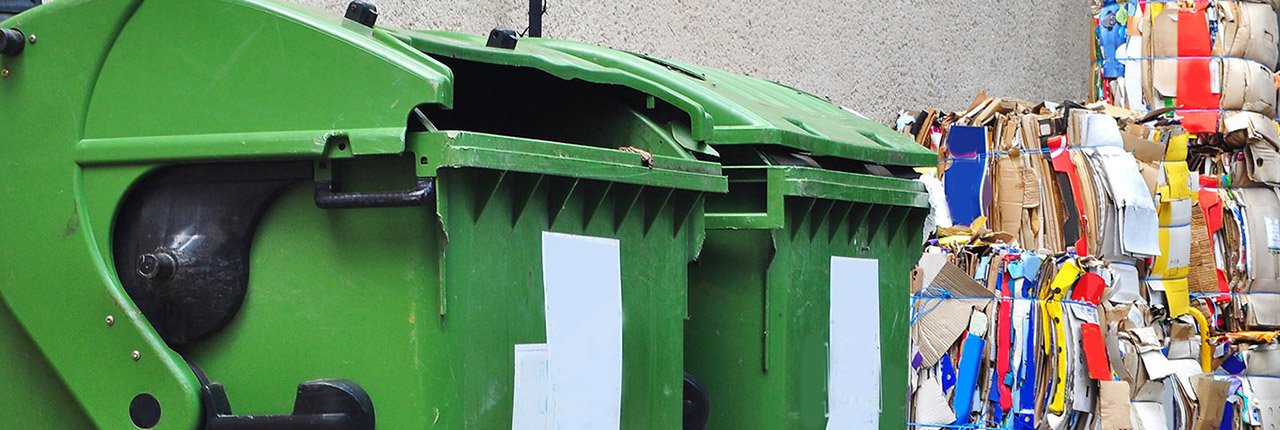Steps to Take When Your Bin Collection is Missed
Posted on 16/05/2025
Steps to Take When Your Bin Collection is Missed
Have you ever woken up to discover that your household waste is still sitting at the curb long after the scheduled pickup time? A missed bin collection can be more than a minor inconvenience--the sight and smell of overflowing rubbish can create health hazards and disrupt your home routine. In this comprehensive guide, we'll walk you through all the essential steps to take if your garbage or recycling bin collection has been missed. By following these actionable tips, you'll handle the issue efficiently and prevent future waste collection issues.

Why Was Your Bin Not Collected?
Understanding the cause behind a missed rubbish collection is the first key step. There are several common reasons why your household bins may have been left behind by your local waste management provider:
- Incorrect placement: The bin was not placed in the designated location or not accessible for the collectors.
- Wrong collection day: Confusion about collection schedules, especially after public holidays or changes announced by your council.
- Unapproved waste items: Prohibited items like batteries, electronic waste, or hazardous substances can result in non-collection.
- Overfilled bins: If the lid is not fully closed or the bin is too heavy, collection may be refused for safety reasons.
- Weather interruptions or mechanical issues: Severe weather or truck breakdowns may cause collection routes to be delayed or missed.
- Missed by mistake: Sometimes, bins are simply missed due to human error.
Identifying the reason behind a missed pickup is crucial, as it dictates what follow-up steps you should take for timely resolution.
Step 1: Double-Check Bin Collection Guidelines
Before raising a complaint, review your local council's waste disposal guidelines. Most councils provide detailed leaflets or online resources explaining:
- What time bins must be put out by (typically by 6 am on collection day).
- The correct location--curbside, at the end of your driveway, or specified communal points in apartments.
- Allowed and prohibited materials for each bin type (general waste, recycling, organic).
- Any recent or upcoming changes to the collection timetable due to public holidays or operational reasons.
Compare this information with how your bin was presented. If any rule was not followed, your bin may have been intentionally skipped.
Step 2: Inspect the Situation
Now that you know the rules, answer the following questions:
- Is the bin clearly full and untouched?
- Are your neighbours' bins also uncollected? This may indicate a wider delay or missed collection for your entire street.
- Are there stickers or notes left by waste collectors? Some providers attach warning tags explaining why your bin wasn't collected.
- Was the bin out before the recommended time?
The answers can uncover whether the missed waste pickup was personal to your bin or part of a larger route-wide oversight.
Step 3: Wait for Delays and Reattempts
Before you contact your council, remember that waste collection delays occasionally happen due to weather, traffic, staff shortages, or vehicle breakdowns. Most councils recommend waiting at least 24 hours past your scheduled collection time before raising a complaint.
- Check social media channels or the council website for alerts about collection route delays.
- If your bin and those of neighbours remain full after 24 hours, it's time to formally report the missed bin collection.
Step 4: Record the Evidence
For a smooth claims process with your council or private waste contractor, always gather evidence of the missed bin collection:
- Take photos of your full bin, showing its placement and that it meets all collection guidelines.
- If possible, take a photo of similarly uncollected bins nearby.
- Note the date and time as proof of when the bin was left out and when it was not collected.
Having this information to hand makes your case clearer and speeds up the response.
Step 5: Contact Your Local Council or Service Provider
Most local councils or private waste companies offer several ways to report a missed waste collection:
- Online portals: Many councils have dedicated online forms for missed recycling or rubbish collections.
- By phone: Use the listed customer service or environmental services number for direct support.
- Email: Attach your photographic evidence and a brief description of the problem.
- Mobile apps: Some councils now offer mobile apps for quick bin collection issue reporting.
Your message should include:
- Your full name and property address.
- The affected bin type (general, recycling, or organic).
- When you placed your bin out for collection.
- Whether the bin was properly positioned and filled per guidelines.
- Mention if neighbours are also affected.
- Attach any photos you took.
A polite, factual message will help council staff promptly investigate your missed garbage pickup or missed recycling collection.
Step 6: Prepare for a Return Collection or Alternative Solution
Once you've lodged a report, most councils will:
- Log your complaint and issue a case/reference number for tracking.
- Arrange a return pickup (usually within 2-3 working days).
- Instruct you on whether to leave your bin out or take it back in until the next scheduled collection.
- Provide advice for excess waste management if a return collection is not possible.
Be sure to follow all provided instructions to maximize the chance of a successful resolution. If a return collection is set, leave your bin in the designated spot with the lid closed until it is emptied.
What to Do with Overflowing Rubbish or Recycling
Sometimes, late collection means your household rubbish or recycling starts to overflow. Here's how to manage excess waste responsibly while awaiting pickup:
- Bag all waste securely to avoid attracting pests or animals.
- Store extra bags in a sheltered, contained area away from animals or rain.
- Do not leave excess bags beside the bin unless instructed, as they are often not collected for safety reasons.
- If the problem persists, ask your council about free drop-off points or community waste sites available to residents for temporary waste disposal.
- Consider waste reduction strategies (composting, recycling at supermarkets) to ease pressure on your bins.
Dealing With Missed Commercial or Communal Bin Collections
If you live in a block of flats or manage a business that uses shared bins, missing a waste or recycling pickup can have a wider impact. Additional steps include:
- Notify your building or site manager as soon as the missed collection is noticed.
- Coordinate with neighbours or tenants to ensure guidelines are followed for next pickup.
- If you are a commercial customer, contact your waste contractor directly for urgent service restoration.
Preventing Future Missed Bin Collections
Regularly missing bin collections is often preventable with these proactive measures:
- Set regular reminders for bin day, factoring in public holidays.
- Subscribe to council email or SMS alerts for route changes.
- Label your bin with your address to avoid confusion or misplacement.
- Keep the path to your bin clear of obstructions (parked cars, overhanging branches).
- Educate household members or staff about waste sorting and bin collection rules.
- Consider installing outdoor lighting for early morning or evening pickups.
Understanding Bin Collection Policies and Your Rights
Local councils have set service standards for timely, reliable waste collection. If you are regularly affected by missed bin pickups or insufficient communication, you:
- Have the right to lodge a formal complaint/unresolved service request. Councils must respond within specified timeframes (usually 5-10 business days).
- Can escalate service failures to environmental health or local government ombudsman offices if your complaint is not resolved satisfactorily.
Persistent issues with missed rubbish or missed recycling collections may also signify broader service failures, which councils are required to address for public hygiene and order.
Key Takeaways: What to Do When Your Bin Collection is Missed
- Stay calm--missed bin collections can be resolved quickly if you follow the right steps.
- Confirm bin day and presentation rules to ensure your bin was adequately prepared for pickup.
- Check for delays or route changes affecting whole streets or neighbourhoods.
- Gather evidence and report the missed bin pickup to your council or service provider promptly.
- Follow up and keep your bin accessible for return collection or next scheduled pickup.
- Manage overflow responsibly and consider ways to reduce waste volume in future.
- If the issue recurs, escalate with formal complaints or liaise with your building manager for communal services.

Frequently Asked Questions on Missed Bin Collections
Can I leave extra waste next to my missed bin?
In most areas, bags left next to bins are not collected for health and safety reasons. Only fill your bin to the brim, keeping the lid closed, and store any excess until your next collection or seek designated drop-off sites.
How quickly will a missed bin collection be rectified?
Councils aim to return within 1-3 working days of receiving a valid complaint, though busy periods may extend this. Always check your council's specific policy.
My missed bin has not been picked up after I reported it--what should I do?
Follow up with your case reference or escalate your complaint through official council channels. Persistent service failures can be taken to your local ombudsman.
Conclusion: Smoothly Handling Missed Bin Collection Incidents
A missed bin collection is a hassle nobody wants, but knowing how to efficiently resolve the situation ensures your home stays tidy and your waste is disposed of in a timely manner. By double-checking council rules, documenting your case, and reporting issues promptly, you'll not only solve one-off problems but enjoy more reliable bin collection services in the future.
For further help, always refer to your municipality's website or contact their waste management team--keeping your corner of the world clean and stress-free.
Latest Posts
Creative Ways to Introduce Kids to Recycling
The Evolution of Waste Management Through Ancient to Modern Times
Discovering the Basics: What Exactly is a Builder's Skip







